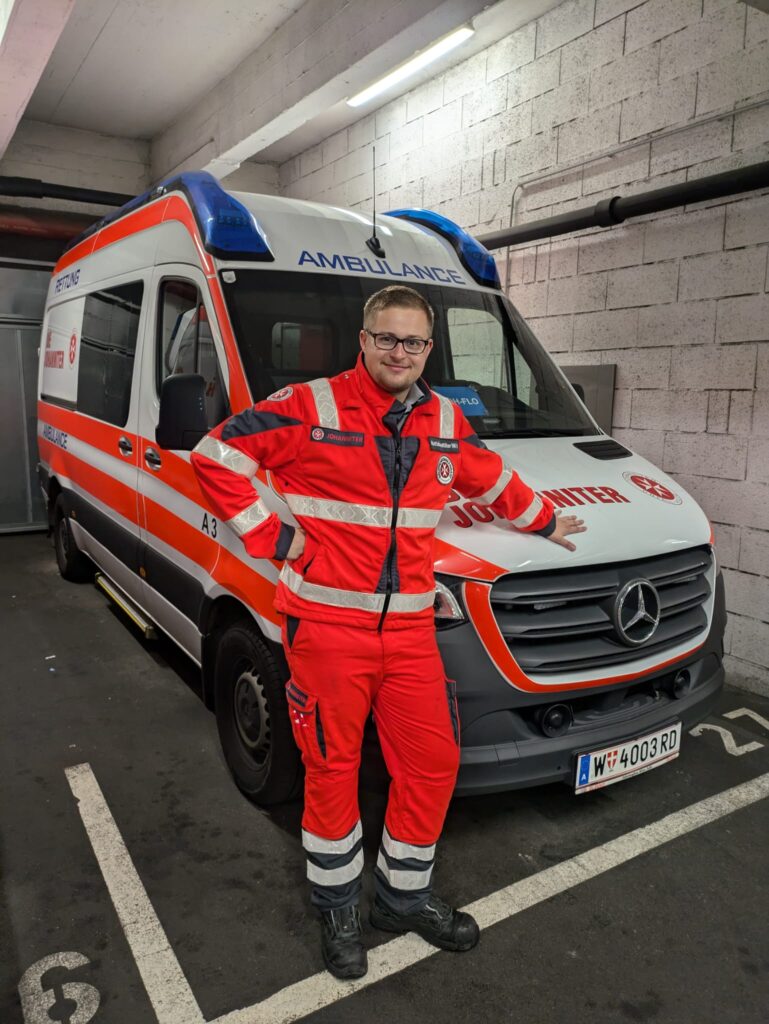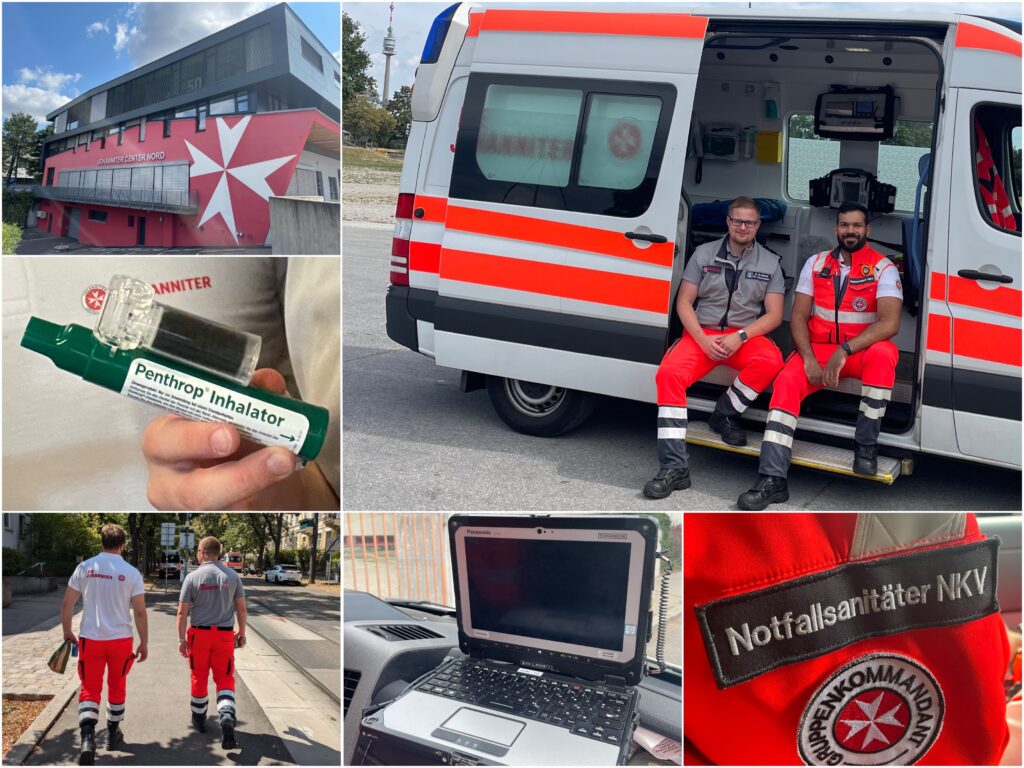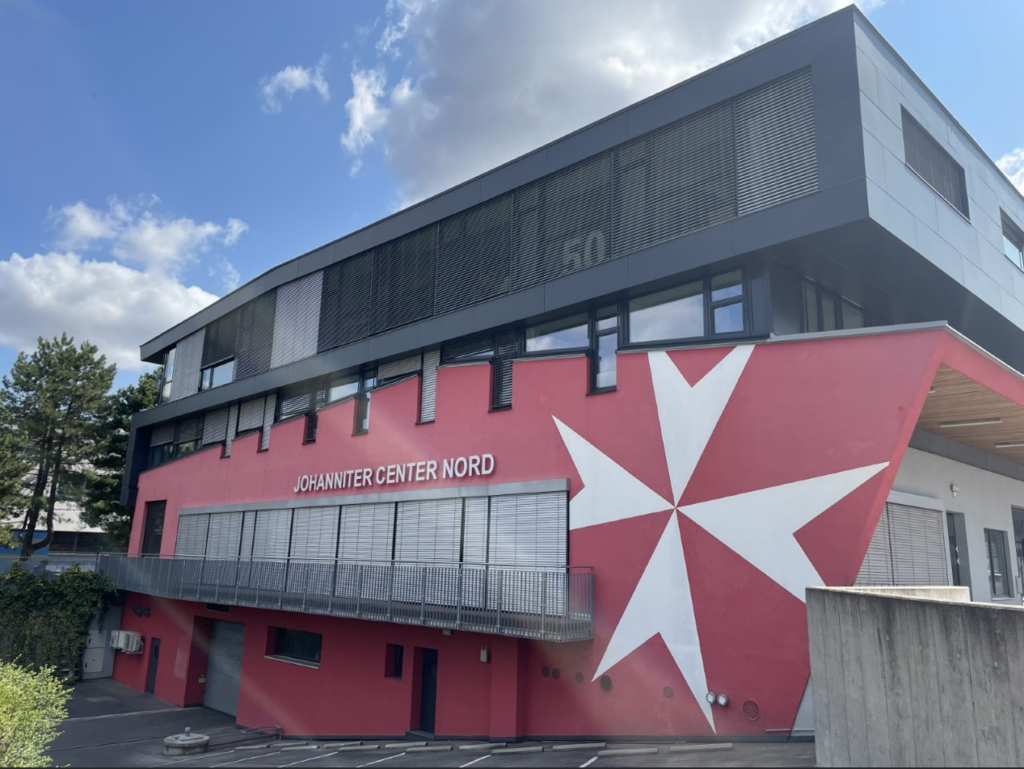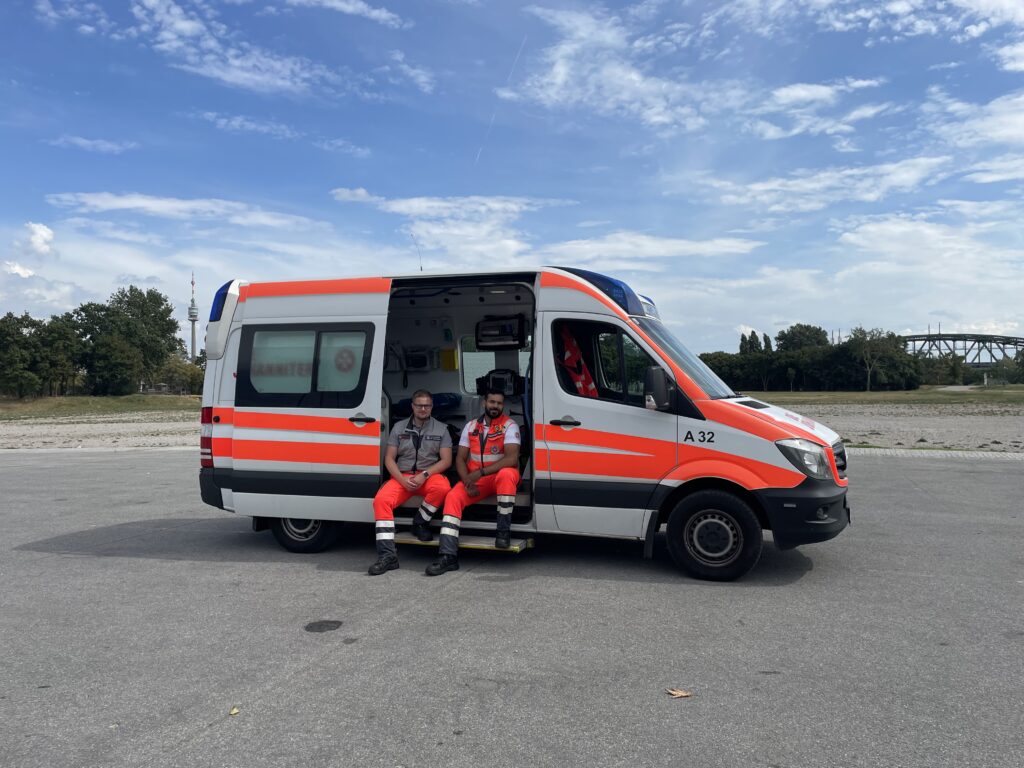Johanniter Austria offers the opportunity for volunteers of all JOIN members to participate in the Ambulance Service all year round. Johanniter in Vienna provides 24/7 patient transport and emergency medical service throughout the whole city of Vienna. The ambulance responds to emergency calls. Gregor from Germany joined Johanniter crews of two ambulance shifts and reports about his experiences and notable differences to procedure in his hometown and country. Gregor is 26-years old and has been a volunteer for more than 10 years and since more than 6 years working full-time in the ambulance with Johanniter in Bavaria. He began his involvement with Johanniter in the traditional school medical service at an age of 15 years. Shortly afterwards he obtained the beginner qualification “Medical Assistant B2”, later the 520-hour “Paramedic” qualification, completed a voluntary year as a first aid instructor and then completed the three-year vocational training to become an emergency paramedic. Gregor is also a member of Johanniter‘s Operational Command Service with the rank of a Platoon Leader, and part of the management unit in charge of planning and executing medium and large-scale ambulance service events in and around Würzburg. After meeting the EMT-I Stefano Mahlberg for the first time in Nuremberg at the music festival “Rock im Park” this summer Gregor planned a volunteer-swap in Vienna to get a better understanding of the prehospital emergency system in Austria.
The medical service in Vienna has 45 trucks each day across the city during peak times. Furthermore, the city of Vienna has approximately more than 26 private and public hospitals, a medical helicopter and a range of private ambulance organizations, including the Johanniter, who work alongside the Vienna municipal ambulance service ‘Berufsrettung’ together hand in hand.
Leaving your comfort zone now and again sharpens your view of what is essential. Not everything at home is good or bad – in some areas we lead at home and in others the Vienna rescue system is ahead. Ultimately, emergency patients receive adequate care everywhere. Directives and guidelines are internationally valid, as are the recommendations of international professional associations such as the European Resuscitation Council or the American Heart Association. The differences between the non-doctor qualifications of rescue and emergency paramedics in direct comparison are interesting: While the qualification “Rettungssanitäter” in Germany/State of Bavaria comprises 520 hours, the qualification period in Austria is at 260 hours. The vocational training to qualify for the title of emergency paramedic, on the other hand, comprises 4,600 hours over three years of training in Germany and 900 hours on top of the 260h in Austria. In addition to the training, emergency paramedics in Austria can acquire the following advanced skills: pharmacology, venous access/infusion and ventilation/intubation. With the appropriate qualifications in emergency skills, they can work independently. In addition to medicine, there are also differences in management: There are clear responsibilities on the part of the local hospitals, digital documentation via laptop with integrated physical keyboard (At my hometown service, we need to plug in an external USB keyboard to allow for efficient typing of more extensive reports) and, compared to Germany, a much stricter management of triage within hospitals, which means that the qualified initial assessment by nursing staff is an unavoidable stop on the way to the central emergency room. Furthermore, the handover of the patient is confirmed via the identification number or name of the staff taking over via a digital signature within the digital documentation.
In conclusion: “Regularly taking a look to your left and to your right, a step out of your own and usual comfort zone and the critical evaluation of the circumstances sharpens your own focus and situation awareness for what is important in our business and that is the care of the patient” – Gregor said. I am looking forward to welcoming Stefano to my station in Würzburg soon. Now I have gained an insight into Vienna and the volunteer swap system is of course based on reciprocity!




